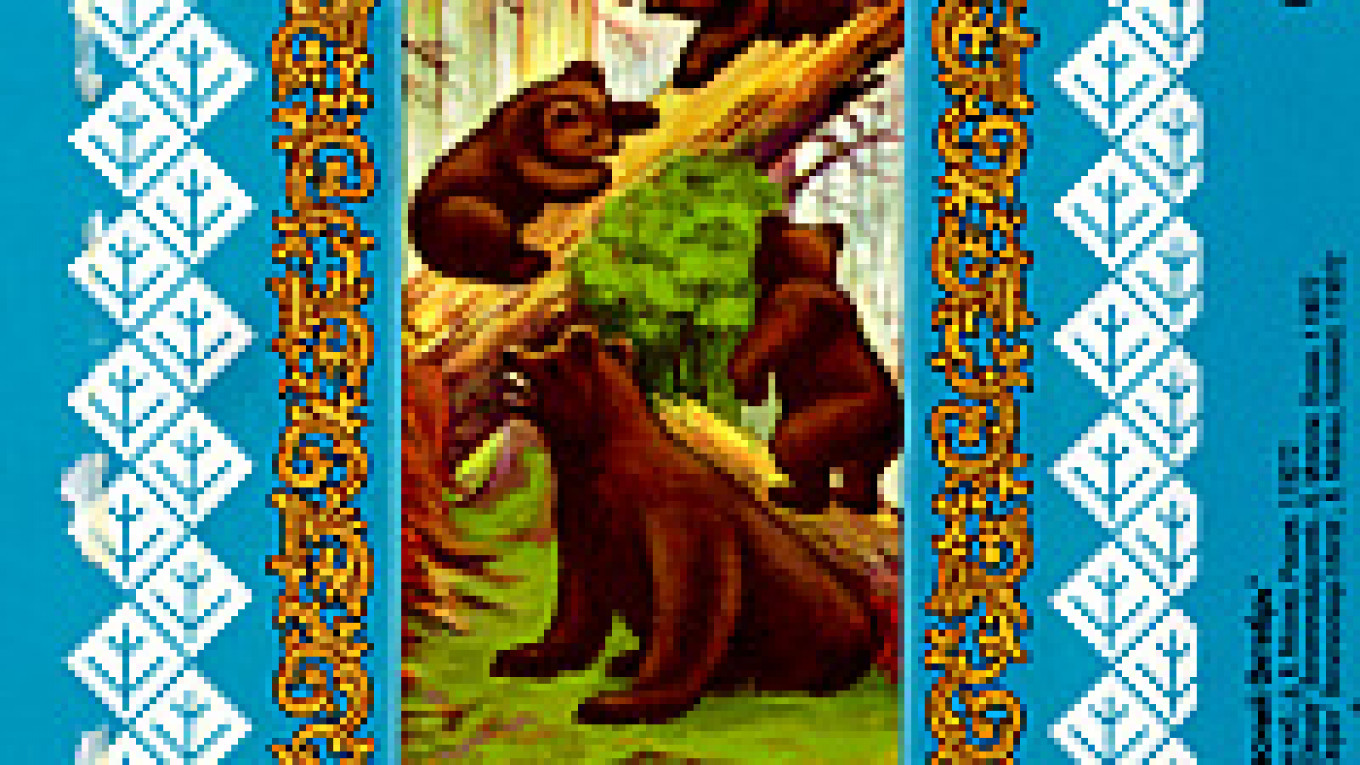It's a confusing story. The work in question involves four artists, one painting, two candy wrappers and three final images. The 1889 painting, which is called -- despite popular opinion to the contrary -- "Morning in a Pine Forest," is attributed to Ivan Shishkin. But Shishkin discussed his first idea of a landscape with another artist, Konstantin Savitsky, who suggested the addition of gamboling bear cubs. Shishkin did piles of sketches of bears, logs, and forests, as did Savitsky. In the end, Shishkin painted the lush, nearly photographically perfect landscape, and Savitsky painted in the four bears. The two artists seem to have been pleased with themselves and each other; both signed the painting. But when Pavel Tretyakov bought the painting for his collection (the basis of the Tretyakov Gallery), he obliterated Savitsky's signature, stating that "from conception to completion, everything indicates the painterly manner and creative method belonging to Shishkin."
The painting became a national favorite. In 1925, when the Soviet government had expropriated and nationalized all the private art collections in the country, and the bourgeois concept of trademarks was but a memory, the Red October factory decided to make a candy based on the popular image. The artist Manuil Andreyev modified the Shishkin-Savitsky image for use on a candy wrapper. The candy was called the Splayfooted Bear Cub and became one of the most popular factory brands. Later, the factory asked yet another artist, Leonid Chelnokov, to redo and modernize the image. Since Chelnokov had been friends with Andreyev, the Chelnokov-Andreyev candy wrapper bears were a kind of mirror image of the original Shishkin-Savitsky painting bears.
The image is appealing, the name is cute, the candy is delicious, and when you eat it, you have a sub-conscious urge to visit the Tretyakov Gallery.
A Message from The Moscow Times:
Dear readers,
We are facing unprecedented challenges. Russia's Prosecutor General's Office has designated The Moscow Times as an "undesirable" organization, criminalizing our work and putting our staff at risk of prosecution. This follows our earlier unjust labeling as a "foreign agent."
These actions are direct attempts to silence independent journalism in Russia. The authorities claim our work "discredits the decisions of the Russian leadership." We see things differently: we strive to provide accurate, unbiased reporting on Russia.
We, the journalists of The Moscow Times, refuse to be silenced. But to continue our work, we need your help.
Your support, no matter how small, makes a world of difference. If you can, please support us monthly starting from just $2. It's quick to set up, and every contribution makes a significant impact.
By supporting The Moscow Times, you're defending open, independent journalism in the face of repression. Thank you for standing with us.
Remind me later.


